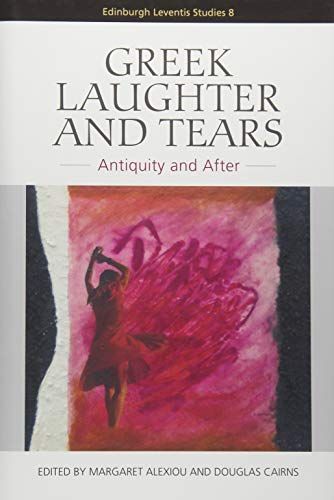
Greek Laughter and Tears Antiquity and After
Explores the range and complexity of human emotions and their transmission across cultural traditionsWhat makes us laugh and cry, sometimes at the same time? How do these two primal, seemingly discrete and non-verbal modes of expression intersect in everyday life and ritual, and what range of emotions do they evoke? How may they be voiced, shaped and coloured in literature and liturgy, art and music?Bringing together scholars from diverse periods and disciplines of Hellenic and Byzantine studies, this volume explores the shifting shapes and functions of laughter and tears. With a focus on the tragic, the comic and the tragicomic dimensions of laughter and tears in art, literature and performance, as well as on their emotional, socio-cultural and religious significance, it breaks new ground in the study of ancient and Byzantine affectivity.Key featuresIncludes an international cast of 25 distinguished contributors Prominence is given to performative arts and to interactions with other cultures Transitions from Late Antiquity to Byzantium, and from Byzantium to the Renaissance, form focal points from which contributors look backwards, forwards and sidewaysHighlights the variety, audacity and quality of the finest Byzantine works and the extent to which they anticipated the renaissance